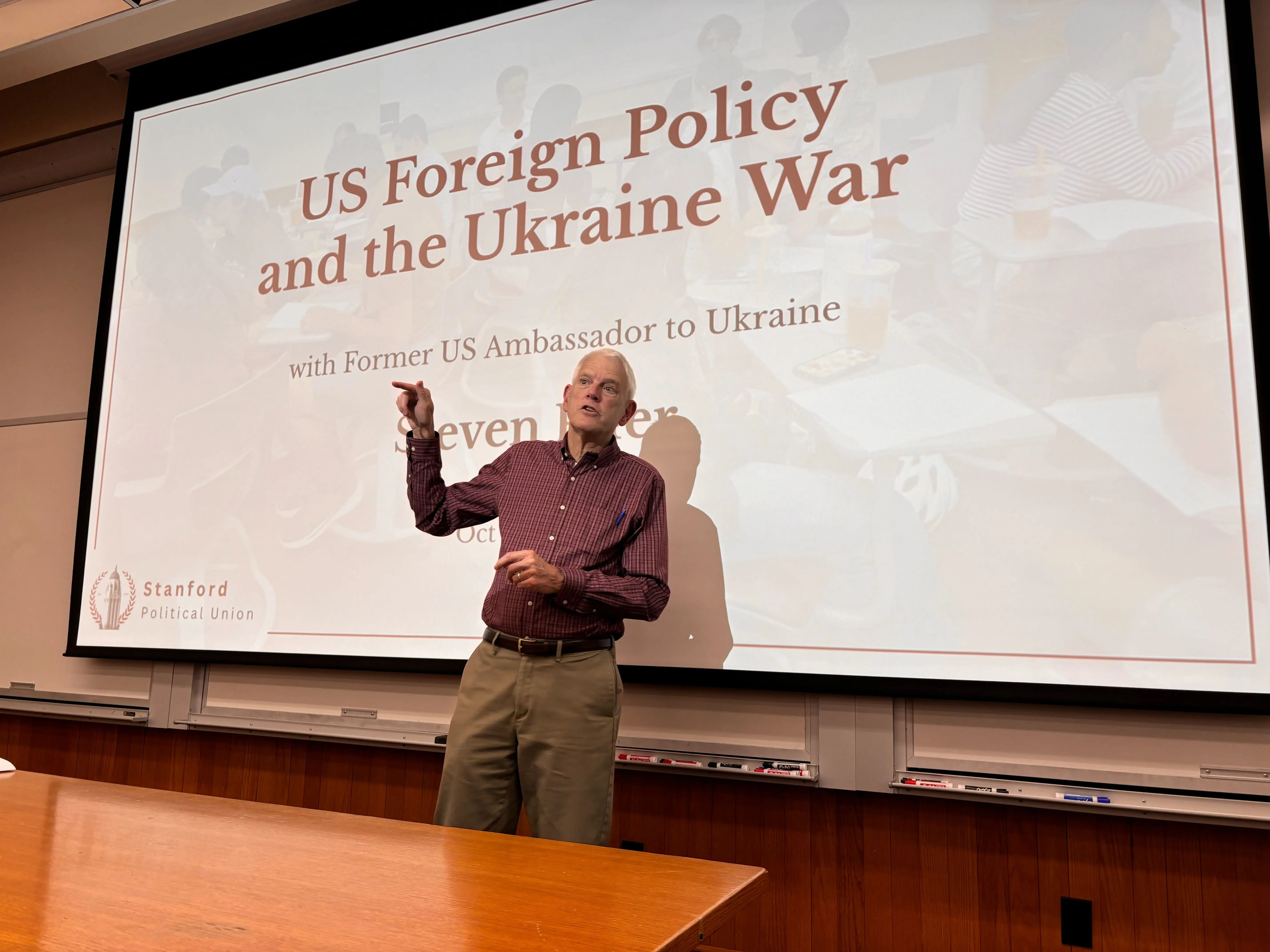Former U.S. ambassador to Ukraine Steven Pifer expressed optimism about Ukraine’s position in the ongoing Russia-Ukraine war in a Wednesday event hosted by the Stanford Political Union.
Pifer served as ambassador under the Clinton administration and is currently affiliated with the Center for International Security and Cooperation and The Europe Center at Stanford. During the event, he challenged the narrative that Russia is winning the war.
“Although the Russians have occupied more Ukrainian territory than they occupied back in January this year, they still occupy a lot less Ukrainian territory than was the case at the height of their success in 2022,” Pifer said. “Although the Russians are making progress, it’s very slow.”
Pifer added that Ukraine has begun to develop improved military capabilities against Russia, including drone strikes.
Still, Pifer said clashing Ukrainian and Russian agendas means peace negotiations between the two countries will not occur anytime soon. Russia is demanding Ukrainian neutrality and its recognition of Crimea as Russian territory, Pifer said, while Ukraine is staunchly against surrender to Russia.
“The usual reaction [from Ukranians] is: ‘No, we are prepared to send our son to die to get back Crimea and to get back Donbas,’” Pifer said.
Putin is not backing down either, he added.
“He’s based the state, his political legacy and probably his political future, on the outcome of the war,” Pifer said.
Pifer expressed concerns about how Putin might be “emboldened” if Russia were to win the war. The Russian president would not have anticipated the estimated 600,000 Russian casualties in the war, Pifer said. He also noted Putin could potentially make another miscalculation, attack a NATO country and spark a war between NATO and Russia.
Russia is facing a lack of manpower, Pifer said, but this manpower shortage has not had a significant impact on Russian public opinion.
“I think a large part of it is because the casualties, anecdotally, appear to be falling on non-ethnic Russian groups,” Pifer said in an interview with The Daily following the event. “But at some point, I think the casualties have to have an impact because losing 1200 people a day is hard to sustain.”
Pifer said, however, that the recent deployment of 3,000 North Korean troops to Russia may indicate Putins’ concerns about a changing tide in public opinion of the war among Russians.
“If the Russians are now recruiting North Korean troops to fight, it suggests that I think Putin might be a little bit nervous about imposing more demands on Russians to come forward to fight,” Pifer said.
Regarding U.S. foreign policy in Ukraine, Pifer said the U.S. should not push Ukraine to negotiate until Russia is “serious.” But he said, “The West can sustain Ukraine at both manageable costs and manageable risk, and it’s in our interest to do that, given the consequences of the Ukrainian loss.” Such consequences would include decreased security and stability in Europe.
Pifer emphasized the importance of the 2024 U.S. election in the trajectory of foreign policy toward Ukraine.
“I fear that a Trump presidency would end American assistance to Ukraine in 2025,” Pifer said. “I don’t believe that Europe has the defense industrial capability to make up for what they would lose if the United States dropped out.”
But Pifer encouraged students to think about the impact of the election on the U.S. more broadly — beyond its assistance in the Russia-Ukraine war.
“There are broader issues here,” Pifer said. “Like what happens to American democracy.”
Attendee Devin Lai ’28 said the event deepened his belief that the U.S. should assist Ukraine in the war.
“This talk further entrenched my belief that supporting Ukraine is necessary,” Lai said.
